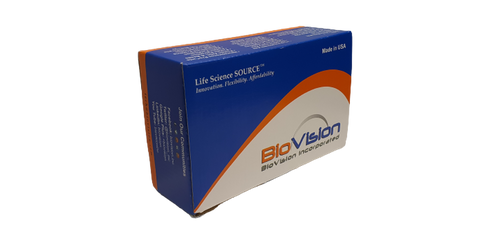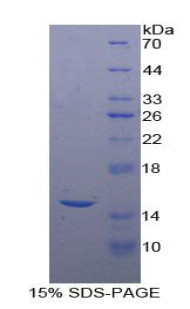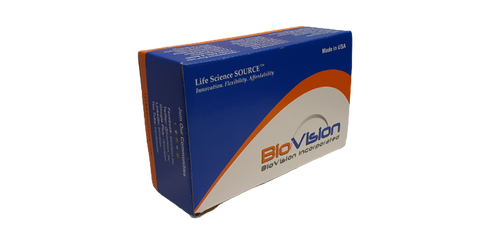Product Description
The carcinoembryonic antigen (CEA) protein is a cell surface glycoprotein. CEA plays a role as an oncogene by promoting tumor progression through its modulation of cell adhesion and intracellular signaling, and inducing resistance to anoikis of colorectal carcinoma cells. CEA is therefore useful as a clinical biomarker for gastrointestinal cancers.
Biovision | P1712 | Human Carcinoembryonic Antigen DataSheet
Biomolecule/Target :
Synonyms: CEA Cell Adhesion Molecule 5; Carcinoembryonic antigen-related cell adhesion molecule 5; Meconium antigen 100; CD66e; CEA; carcinoembryonic antigen; CD66e antigen; CEACAM5
Alternates names:
Taglines: Potential oncogene that modulates cell adhesion; native protein isolated from human liver metastases
NCBI Gene ID #: 1048
NCBI Gene Symbol:
Gene Source: Human
Accession #: P06731
Recombinant: False
Source: Human liver metastases
Purity by SDS-PAGE: ≥ 95% by SDS-PAGE
Assay:
Purity:
Assay #2:
Endotoxin Level:
Activity (Specifications/test method):
Biological activity: Activity verified by Accubind ELISA
Results:
Binding Capacity:
Unit Definition:
Molecular Weight: 77 kDa predicted; 180 kDa observed (due to extensive glycosylation)
Concentration:
Appearance: Lyophilized protein
Physical form description: Lyophilized powder
Reconstitution Instructions: Reconstitute using neutral pH buffer of choice
Amino acid sequence: Full length native protein
Handling: Centrifuge the vial prior to opening.
Usage: For Research Use Only! Not to be used in humans
 Euro
Euro
 USD
USD
 British Pound
British Pound
 NULL
NULL












